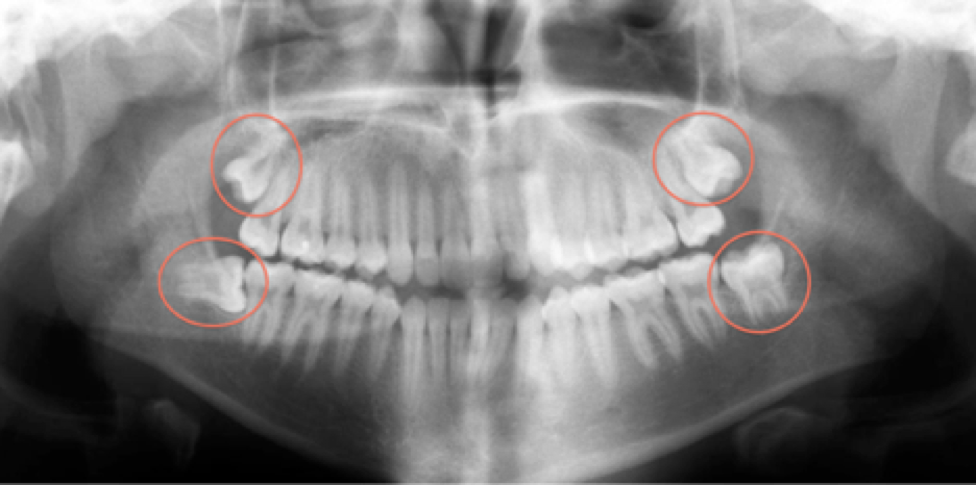


Ever had that nagging thought about what it’ll be like to speak after wisdom teeth extraction? You’re not alone. Many people wonder if they’ll be able to chat right away or if they’ll be stuck in a silence zone for days. If you’re scheduled for this procedure or just had it, you’re likely pondering the same thing. Well, let’s dive into the nitty-gritty and answer that burning question: can you talk after wisdom teeth removal?
Wisdom teeth surgery involves a recovery process that requires careful attention to post-operative care and professional recommendations.
The Wisdom Teeth Removal Journey: A Metaphor for Life
Getting your wisdom teeth removed is a bit like clearing out clutter from your garage. You know it’s necessary, it can be a bit uncomfortable, and the results make everything so much better. Just like a tidy garage gives you more space and less stress, removing those pesky wisdom teeth can lead to a healthier mouth and fewer problems down the road.
In this blog, we’ll explore the ins and outs of post-wisdom teeth removal, focusing on swelling, numbness, and how these factors can affect your speaking abilities. We’ll also touch on why choosing Mahogany Oral Surgery in Calgary, AB, is your best bet for a smooth recovery.
Why Swelling Happens and How It Affects Your Speech

Swelling is a common side effect after dental surgery and can significantly impact your ability to speak. It is important to follow your dentist’s instructions to manage swelling effectively. However, patients should also be aware of excessive bleeding and know when to seek professional help. If you experience excessive bleeding that doesn’t stop after applying pressure, contact your dentist immediately.
If you experience severe pain, you should contact your dentist for advice.
What Causes Swelling?
Swelling is your body’s natural response to surgery. When wisdom teeth are removed, your body sends blood to the area to begin the healing process, causing it to swell. This is a normal part of recovery and usually peaks about 48 hours after surgery before gradually subsiding.
How Swelling Impacts Your Ability to Talk
Swelling can make your mouth feel full, which can affect your speech. It’s like trying to talk with a marshmallow in your mouth – not impossible, but definitely challenging. Swollen tissues limit your ability to move your jaw and tongue freely, making it harder to articulate words.
Practical Tip: Keep your head elevated, use ice packs, and take anti-inflammatory medications as directed to reduce swelling and improve your comfort.
Statistic: According to a study published in the Journal of Oral and Maxillofacial Surgery, approximately 80% of patients experience significant swelling after wisdom teeth removal, which can impact speech for a few days.
Quote: “Swelling is a natural response to oral surgery and can vary greatly among individuals. Following post-op care instructions can significantly reduce discomfort and hasten recovery.” – Dr. Brad Fisher, Oral Surgeon
Numbness: What to Expect and How It Affects Speech
The Role of Anesthesia
During wisdom teeth removal, local anesthesia or sedation is used to numb the area and ensure you don’t feel pain during the procedure. This numbness can last a few hours post-surgery, affecting your ability to speak clearly.
When Numbness Lingers
In some cases, numbness can persist longer, especially if the surgery was complex or if nerves were involved. While this is usually temporary, it can make speaking feel a bit strange.
Practical Tip: Be patient and give your body time to recover. Avoid biting your tongue or cheeks while they’re numb.
Statistic: Research from the British Journal of Oral and Maxillofacial Surgery shows that prolonged numbness after wisdom teeth removal occurs in about 1-5% of cases, depending on the complexity of the surgery.
Quote: “Numbness post-surgery is typically temporary. It’s important to follow your surgeon’s advice and allow time for full sensation to return.” – Dr. Brett Habijanec, Oral Surgeon
How to Speak Comfortably After Wisdom Teeth Removal

After wisdom tooth extraction, speaking comfortably requires following specific post-operative care tips. After wisdom teeth extraction, speaking comfortably can be a challenge. Practicing oral muscle exercises to improve flexibility and control of mouth muscles can significantly speed up the talking process and ensure a successful recovery.
Start Slow and Steady
Right after your surgery, it’s best to rest your mouth as much as possible. Limit conversations to essential communication only. Over time, as swelling decreases and numbness fades, you can gradually start speaking more.
Use Simple Language and Take Breaks
When you do need to talk, use simple words and sentences. Take breaks to avoid straining your mouth.
Practical Tip: Communicate using text or writing if speaking feels too uncomfortable initially.
Statistic: A study in the International Journal of Oral and Maxillofacial Surgery noted that most patients feel comfortable speaking normally within a week after surgery.
Quote: “Rest is crucial after oral surgery. Gradually resuming activities, including speaking, ensures a smoother recovery.” – Dr. Graham Cobb, Oral Surgeon
Tips for a Smooth Recovery
Follow Post-Operative Instructions
It’s essential to follow the post-operative care instructions provided by your oral surgeon. This includes keeping the surgical site clean, taking prescribed medications, and attending follow-up appointments.
Stay Hydrated and Eat Soft Foods
Hydration aids in the healing process. Stick to soft foods that don’t require much chewing to avoid aggravating the surgical site.
Practical Tip: Stock up on smoothies, soups, and yogurt before your surgery to have easy options available during recovery.
Statistic: The Canadian Association of Oral and Maxillofacial Surgeons reports that proper post-op care significantly reduces the risk of complications and speeds up recovery.
Quote: “Proper nutrition and hydration play a key role in the healing process after oral surgery.” – Dr. Simon Touchan.
The Importance of Rest After Surgery

Why Rest Matters
Rest is a critical component of recovery after wisdom teeth removal. Your body needs time to heal, and resting helps reduce the risk of complications such as dry socket, which can occur if the blood clot at the surgery site is dislodged.
Creating a Restful Environment
Ensure your recovery space is comfortable and stocked with essentials. Use extra pillows to keep your head elevated and have entertainment options like books or movies to keep you occupied without straining your mouth.
Practical Tip: Avoid strenuous activities for at least a week after surgery to prevent complications and promote healing.
Statistic: According to the Canadian Dental Association, patients who get adequate rest after surgery recover faster and with fewer complications.
Quote: “Rest is an often overlooked yet vital part of post-surgical recovery. Allow your body the time it needs to heal properly.” – Dr. Miller Smith, Oral Surgeon
Pain Management: Keeping Discomfort at Bay
Understanding Post-Surgical Pain
Pain after wisdom teeth removal is normal and can be managed effectively with the right strategies. Your surgeon will prescribe pain medication to help you stay comfortable during the initial recovery period.
Alternative Pain Relief Methods
In addition to prescribed medications, there are several alternative methods to alleviate pain, such as using ice packs, practicing relaxation techniques, and staying hydrated.
Practical Tip: Follow your surgeon’s advice on pain management and avoid over-the-counter medications that have not been recommended.
Statistic: A study from the Journal of Pain Research found that patients who follow their prescribed pain management plan experience a 30% reduction in discomfort during recovery.
Quote: “Effective pain management is crucial for a smooth recovery. Use the prescribed medications and follow all care instructions carefully.” – Dr. Brad Fisher, Oral Surgeon
Why Choose Mahogany Oral Surgery for Your Wisdom Teeth Removal

Expert Care in Calgary, AB
At Mahogany Oral Surgery, our team of experienced oral surgeons is dedicated to providing top-notch care. With a focus on patient comfort and successful outcomes, we’re here to guide you through every step of the wisdom teeth removal process.
Personalized Treatment Plans
We understand that every patient is unique. That’s why we offer personalized treatment plans tailored to your specific needs and comfort.
Practical Tip: Schedule a consultation with us to discuss your case and learn more about the procedure.
Statistic: Our patient satisfaction rate is over 95%, reflecting our commitment to excellence in oral surgery.
Quote: “Choosing the right oral surgeon can make a significant difference in your recovery experience.” – Dr. Brett Habijanac, Oral Surgeon
Maintaining Oral Hygiene After Surgery
The Role of Oral Hygiene
Keeping your mouth clean after surgery is crucial to prevent infection and promote healing. Your oral surgeon will provide specific instructions on how to care for your mouth in the days following your procedure.
Gentle Cleaning Techniques
Use a soft-bristled toothbrush and be gentle around the surgical sites. Avoid harsh rinsing or spitting to prevent dislodging the blood clot that forms in the socket.
Practical Tip: Rinsing your mouth with a saline solution or a prescribed mouthwash helps keep the area clean without causing irritation.
Statistic: Proper oral hygiene after surgery reduces the risk of infection by 40%, according to a study in the Journal of Clinical Periodontology.
Quote: “Maintaining good oral hygiene is essential for a quick and complication-free recovery.” – Dr. Simon Touchan, Oral Surgeon
Conclusion: Your Path to a Smooth Recovery
In summary, while talking after wisdom teeth removal can be challenging due to swelling and numbness, it’s generally possible with some adjustments and patience. Following post-operative care instructions, staying hydrated, and choosing a reputable oral surgery practice like Mahogany Oral Surgery can make all the difference in your recovery journey.
Remember, a bit of discomfort is normal, but with the right care, you’ll be back to chatting comfortably in no time. So, if you’re in Calgary, AB, and need wisdom teeth removal, look no further than Mahogany Oral Surgery – your partners in health and recovery.
Inspirational Message: “Every recovery is a step towards better health. Embrace the journey with patience and trust in the expertise guiding you.”
Ready to schedule your consultation? Visit Mahogany Oral Surgery and take the first step towards a healthier, happier smile.


